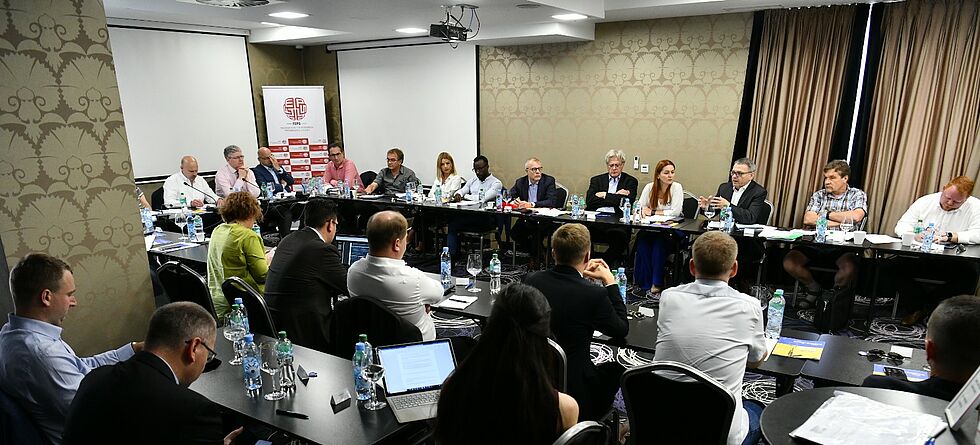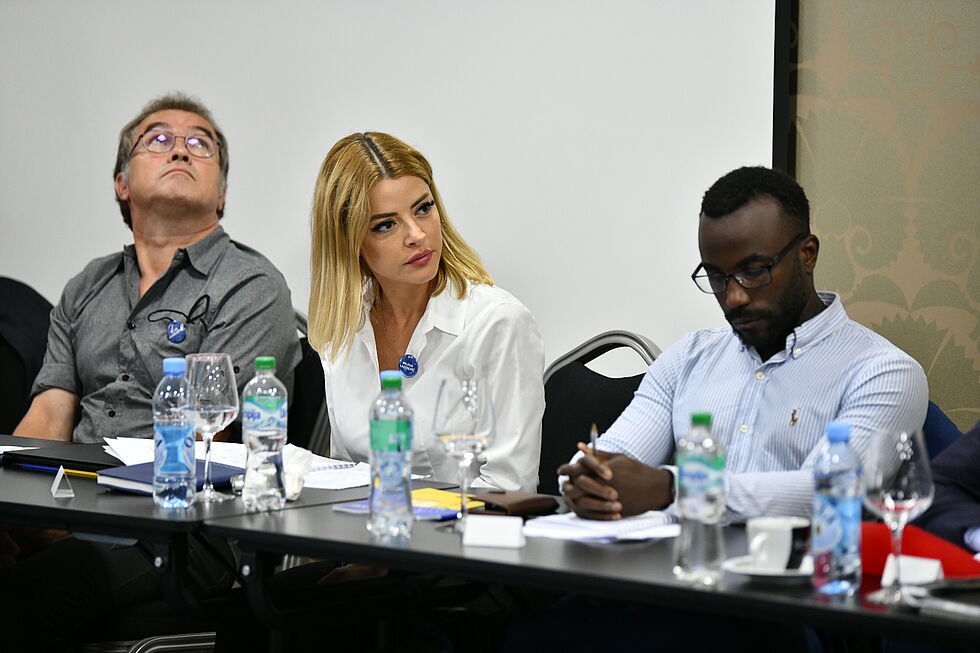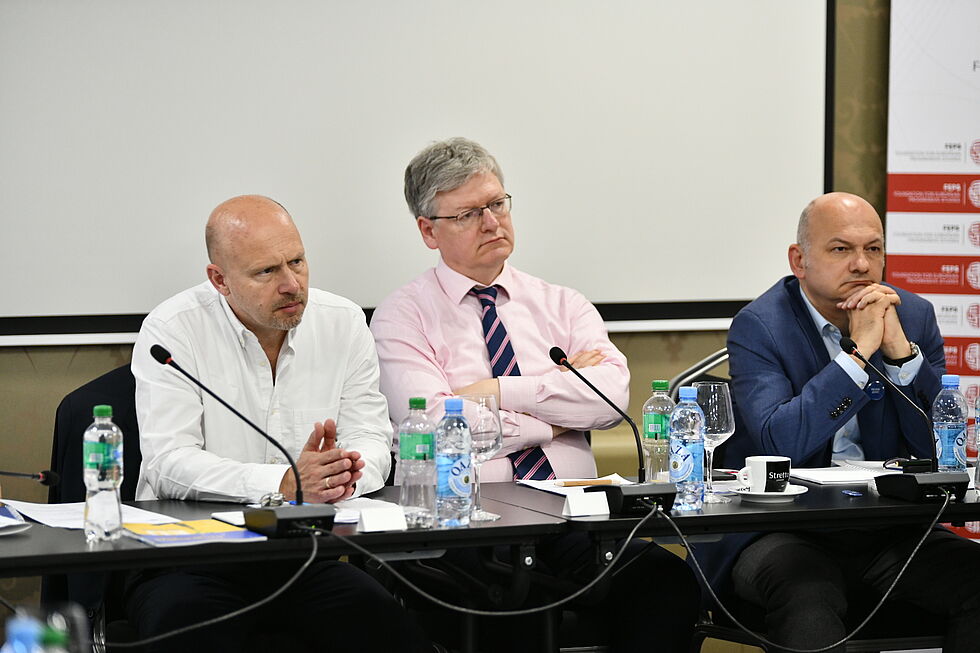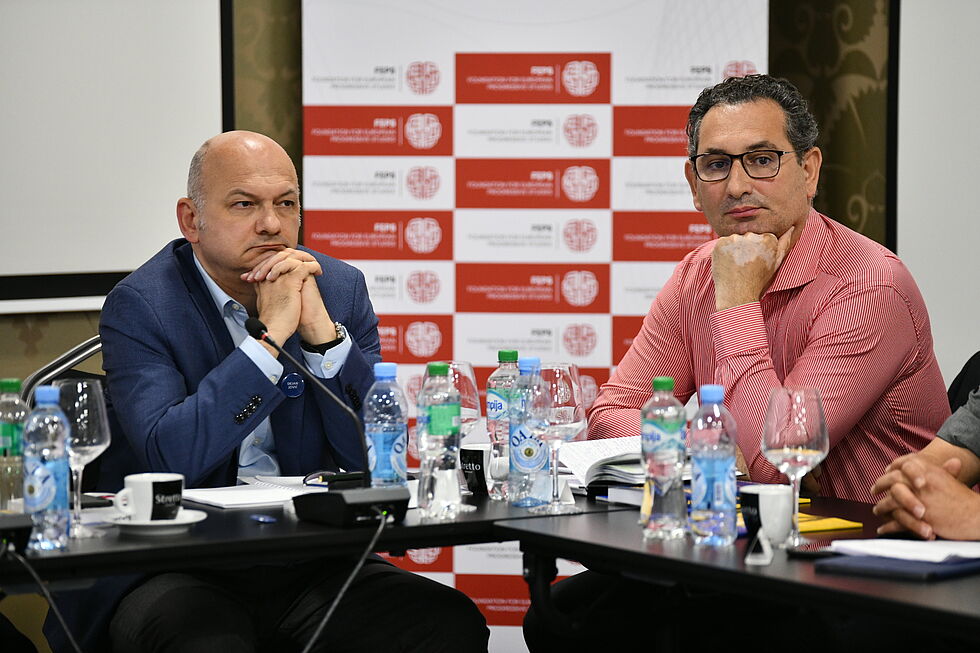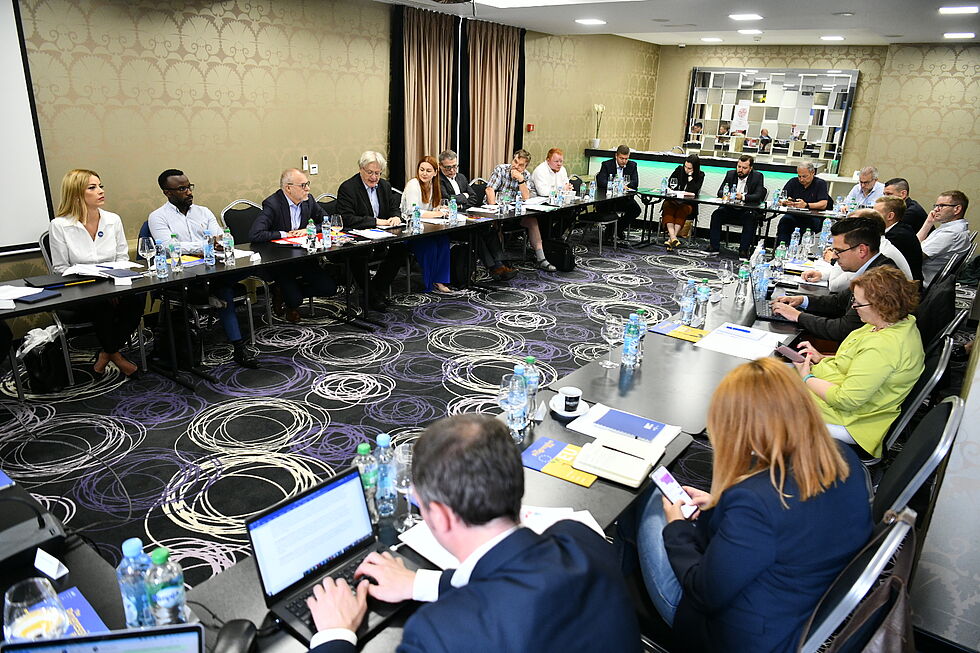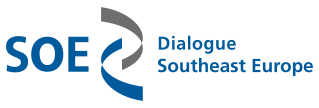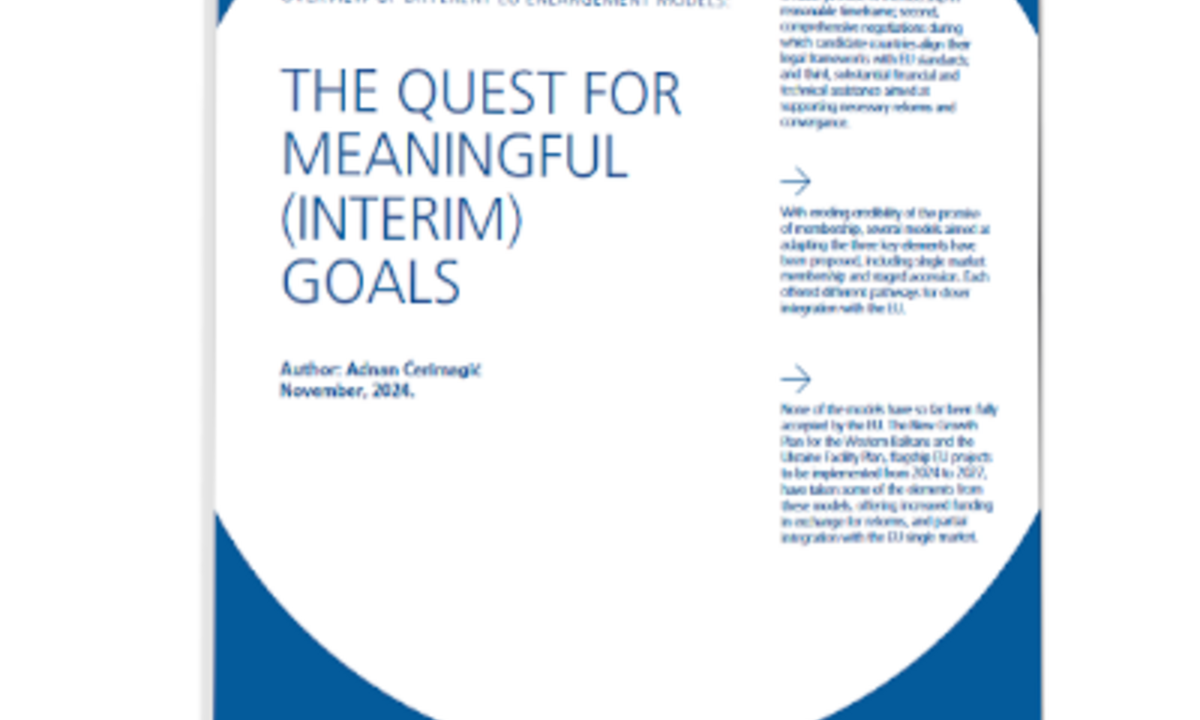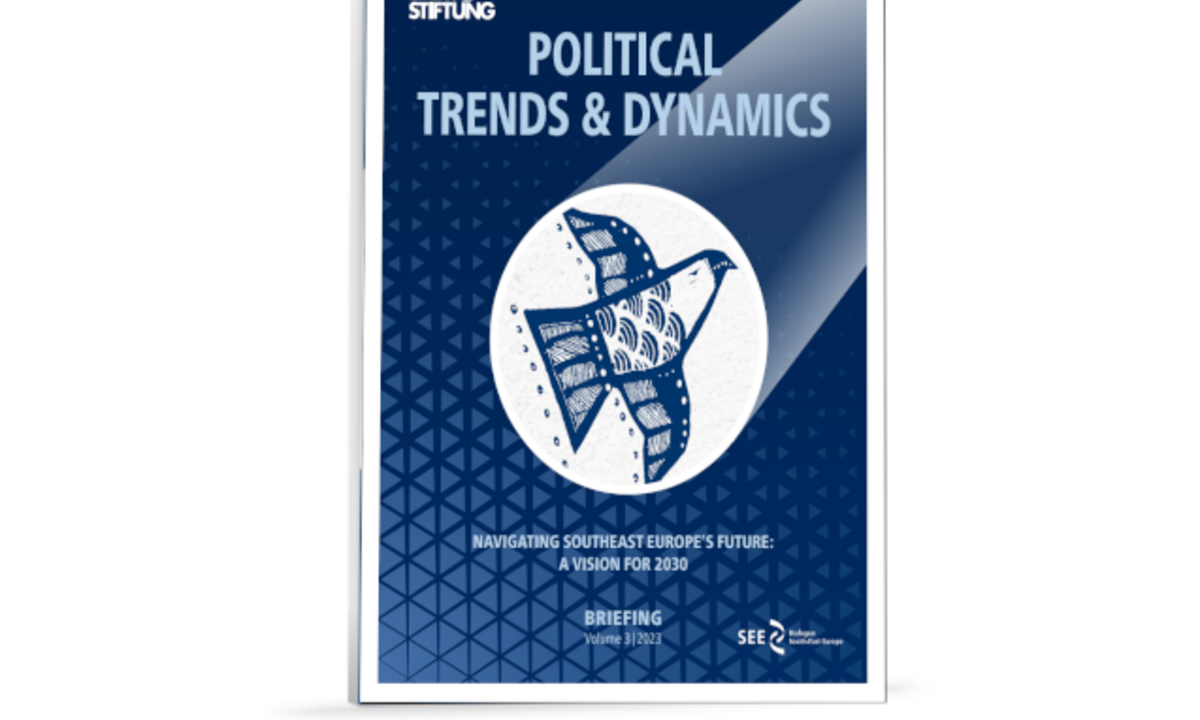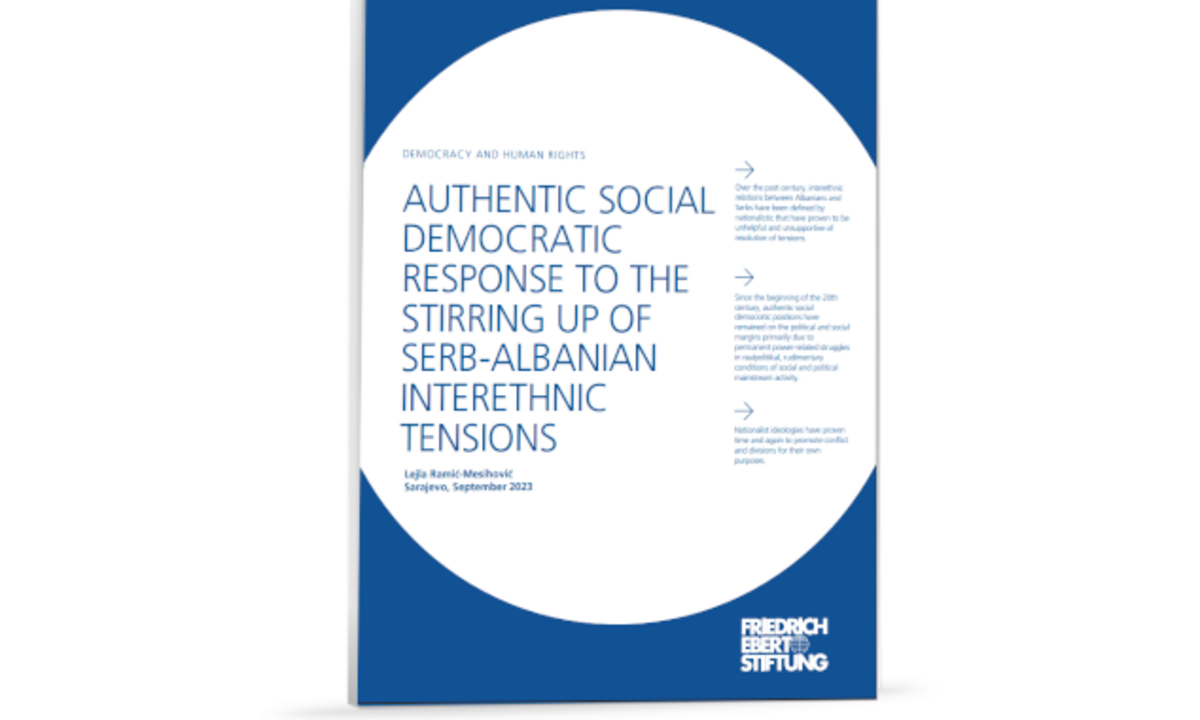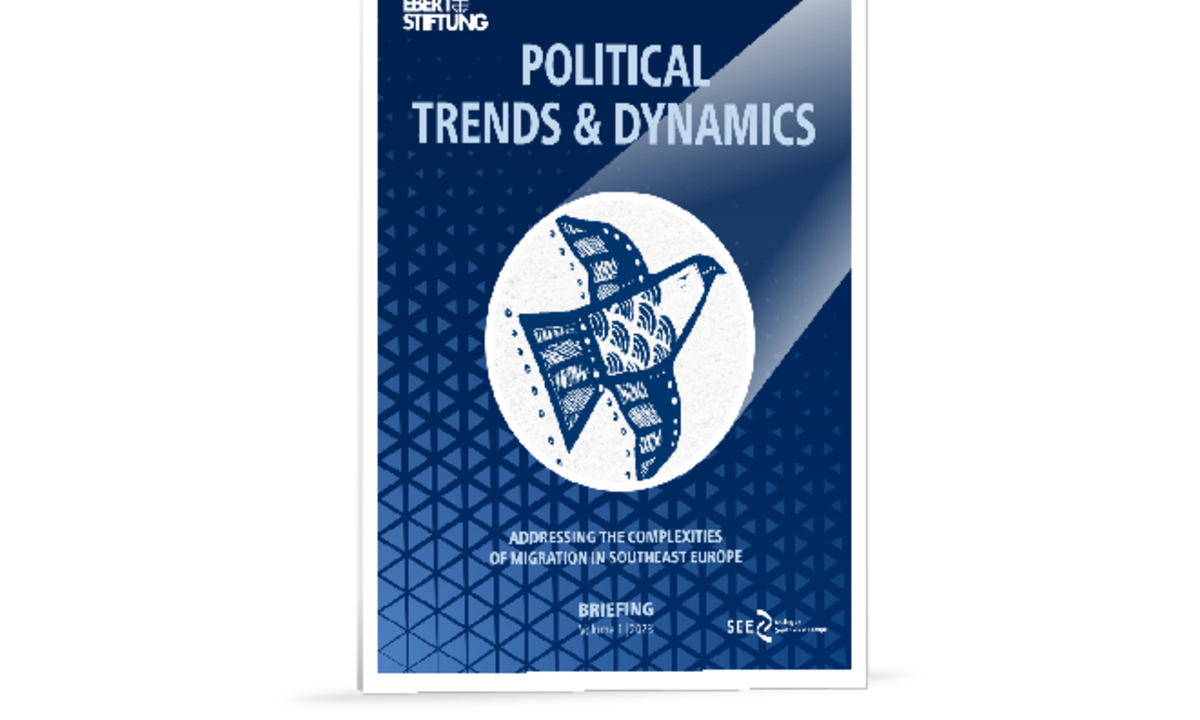Joint Statement of the Friends of the Western Balkans in Thessaloniki
While the path seems to be still long and filled with obstacles, the Friends of the Western Balkans- a network including politicians, MPs, MEPs, social-democratic political foundations, and experts - advocate for decisive steps that will actually bring the Western Balkans into the EU.
Over the course of three days, they looked at geopolitical developments since the Russian aggression on Ukraine and their impacts on the EU - Western Balkan relations and evaluated the current debates on new accession models.
The mission of this network, as agreed during the first meeting held in Sarajevo and confirmed on the occasion of the second meeting in Prague, is to provide more insight and information on the current political, social, and economic situation in the Western Balkans, the challenges ahead and the state of play of the enlargement process to parliamentarians of the EU member states, so that they can, in turn, get a better understanding and advocate – with the logistic, technical and intellectual support of the consortium mentioned above of political foundations – for enlargement before their respective governments, parliaments, and the public.
As the outcome of the meeting, Friends of the Western Balkans issued the following join statement:
We, the network of the Friends of the Western Balkans, representatives of the European social democratic family, including political foundations, members of national and European Parliaments, parties and civil societies’ representatives of the region, have convened our third meeting in Thessaloniki in June 2023.
Twenty years after the Thessaloniki Summit of 21 June 2003, we reaffirm our commitment to the unequivocal support to the EU perspective of the Western Balkan countries and the core principles outlined at the Summit. The European Union is not whole until the integration of the Western Balkans is complete. We welcome the candidate status granted to Ukraine and Moldova and, hopefully, to Georgia soon, but we believe that their path towards the EU should not undermine that undertaken by the Western Balkan countries twenty years ago.
Regrettably, during these twenty years, European integration has stagnated, and many opportunities and windows for progress have been missed by both sides. We cannot afford any more missed opportunities and historical mistakes.
In the spirit of the Thessaloniki agenda, which aims to help the region move towards European integration, we acknowledge a renewed engagement with the enlargement process from the European Union, which needs to properly fulfil the promise made in Thessaloniki and seize the momentum of an accelerated process of integration. We must catch this momentum and for this, we need the commitments of the Western Balkan countries and the political resolve and consistency of the European Union and the member states.
We strongly encourage the adoption of a clear roadmap for the Western Balkans, which could provide tangible incentives and foster the Western Balkan countries’ gradual and timely integration into the Union.
Concerning the process of accession of the six Western Balkans countries, we:
- Express concerns about the erosion of civil and political liberties in Serbia; strongly condemn Serbia’s non-alignment with EU sanctions against Russia; point to the noxious support Serbian authorities receive from Hungary in their joint consolidation of an illiberal front; and hope that the ongoing protests against the systemic violence in Serbia will have political implications and bolster the long-awaited democratisation of the country.
- Encourage the political leadership in Montenegro to refocus on its integration process after a too-long period of political deadlock and identity tensions.
- Support Albania and North Macedonia’s efforts in their accession negotiations with the European Union, and stress furthermore that North Macedonia’s EU path must not be held hostage by bilateral issues imposed by Bulgaria. The EU has the responsibility to ensure that the accession path is not blocked by bilateral issues not related to accession criteria, which must remain a guiding principle vis-à-vis all candidate countries.
- Express concerns about the permanent threats of secessions in Bosnia and Herzegovina and the damaging interferences from both Serbia and Croatia. We are confident that only the European
- agenda of integration is able to prevent further ethnic fragmentation. Therefore, we encourage all progressive stakeholders to give effects to the impetus of the candidate status granted last December.
- Express our concerns on serious developments in northern Kosovo; invite the member states and European institutions to adopt a balanced approach, acknowledging the responsibility of both sides in ensuring a de-escalation of the tensions and a truly committed return to the table of dialogue.
- Welcome Kosovo’s formal membership application but regret that, after twenty years, one of the WB6 is still only a potential candidate.
- Stress the importance of supporting civil society in the Western Balkan countries and their role in promoting the EU integration process in the interest of democracy, peace, rule of law, social justice, equality and solidarity in line with EU values.
- Reassert that, even if rightly the accession process has become a matter of geostrategic and security investment against external and internal adversaries of European values, enlargement cannot be neglected nor obstructed because of geopolitics or member states’ bilateral considerations.
- We call on all member states to adopt a more supportive and proactive stance in enlargement matters and signal this support to both their societies and Western Balkans’ progressive forces.
Twenty years after the Thessaloniki Declaration, and in light of the global threats and the return of the war on European soil, the EU cannot afford to let again in a state of permanent uncertainty a region of 18 million inhabitants surrounded by EU member states.
Download the Joint Statement of Friends of the Western Balkans here.
SIGNATORIES
- Adis Ahmetović, Member of Parliament, Germany
- László Andor, Secretary General, FEPS
- Jean-Marc Ayrault, Former Prime Minister of France, former Minister of Foreign Affairs, current President of Fondation Jean-Jaurès
- Denis Begic, Member of Parliament, Sweden
- Doris Bures, President of the Karl-Renner-Institut, Austria
- Irfan Čengić, Member of House of Peoples of Parliament, and Member of Canton Sarajevo Assembly, Bosnia and Herzegovina
- István Jácint Csaba, Hungarian Socialist Party
- Lauri Finèr, Director, Kalevi Sorsa Foundation, Finland
- Knut Fleckenstein, former Member of the European Parliament, and FEPS Special advisor on the Western Balkans
- Liutauras Gudžinskas, Vice-chair of the Lithuanian Social Democratic Party
- Gábor Harangozó, former Member of the European Parliament, Hungary
- Juljan Hodaj, Deputy Minister of Interior, Albania
- Ties Huis in ‘t Veld, International Secretary of the PvdA, The Netherlands
- Josip Juratović, Member of Parliament, Germany
- Kido Koenig, Director, Foundation Max van der Stoel, Netherlands
- Arbëreşe Kryeziu Hyseni, Chair of the Committee on Foreign Affairs and Diaspora, Assembly of the Republic of Kosova
- Romina Kuko, Deputy Minister of Interior, President of Tirana Municipal Council, Albania
- Jean-Yves Leconte, Senator, France
- Florent Marciacq, Co-director of L’Observatoire des Balkans, Fondation Jean-Jaurès, France
- Marko Mihailoski, President of Social Democratic Youth, North Macedonia
- George Papandreou, Member of the Greek Parliament, former Prime Minister and former Minister of Foreign Affairs, Greece
- Lana Prlić, Member of Parliament, Bosnia and Herzegovina
- Thijs Reuten, Member of the European Parliament, The Netherlands
- Martin Schulz, former President of the European Parliament, Chairman of Friedrich-Ebert-Stiftung, Germany
- Radmila Šekerinska, former Minister of Defence and former Deputy Prime Minister for European Integration, and current Vice-President of the Party of European Socialists, North Macedonia
- Ledjon Shahini, Executive Director, Qemal Stafa Foundation, Albania
- Sanela Shkrijelj, Member of Parliament, North Macedonia
- Daša Šilović, Chair of the International Board, CEE Network for Gender Issues
- Aleksandar Lj. Spasov, Advisor to the President of the Republic for Foreign Policy, Domestic Policy and Constitutional Issues, North Macedonia
- Anna Sundström, Secretary General, Olof Palme International Centre, Sweden
- Bertalan Tóth, Member of Parliament, Hungary
- Harald Troch, Member of Parliament, Austria
- Visar Ymeri, Executive Director, Musine Kokalari Foundation, Kosovo
- Arbër Zaimi, Member of the Presidency, Self-Determination Movement, Kosova
- Lubomír Zaorálek, former Minister of Foreign Affairs and Chair of Masarykova demokratická akademie, Czechia
Friedrich-Ebert-Stiftung
Dialogue Southeast Europe
Kupreška 20, 71000 Sarajevo
Bosnia and Herzegovina
Team & Contact
Subscribe to our mailing list and receive our publications as soon as they are available: send us your contact info via info.soe(at)fes.de
